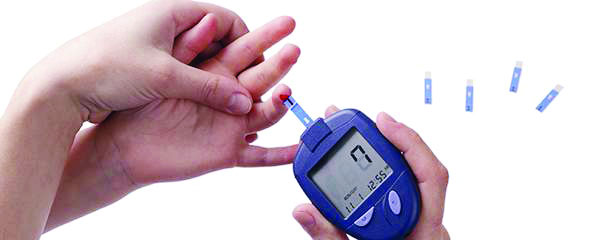The incidence of type I Diabetes is rising by three per cent every year, with nearly 75,000 new children being diagnosed to have T1DM every year. Type I Diabetes is also known as Insulin Dependent Diabetes Mellitus (IDDM) and Juvenile Onset Diabetes Mellitus. As of 2018, there were at least 97,000 cases of juvenile Diabetes reported in India alone, which is alarming.
Type I Diabetes is an autoimmune disorder which affects the pancreas, and stops the production of insulin. Insulin is a hormone which plays a number of roles in the body’s metabolism. Insulin regulates how the body uses and stores glucose and fat. Many of the body’s cells rely on insulin to take glucose from the blood for energy. The hampering of the production of insulin leads to laboured functioning of other internal systems. The circulatory system, nervous system, skin, eyes, feet and others, are all impacted by Diabetes.
Juvenile Diabetes has been connected to viral infections like mumps, rubella, and even in-utero enteroviral infections, along with early stage nutrition. However, one of the most direct and apparent causes till date has been genetics. Men and women with type I Diabetes tend to stand a greater chance of passing on the disease to their children.
In case of women with type I Diabetes, the risk is higher in case of pregnancies after the age of 25. About one in every seven people with type I Diabetes have a condition called Type II Polyglandular Autoimmune Syndrome. This condition leads to thyroid and malfunctioning of adrenal gland. The child’s risk of developing Diabetes in this case is as high as 50 per cent.
It is crucial for families to be aware of the risk factors, and the possible impact on their children. The best way to prevent/prepare for possibility of the disease is regular screening, regardless. There are tests that can accurately assess risk of Diabetes, bifurcated below.
- Glycosylated Hemoglobin: Which tells us the average blood sugar level over the last two to three months, to identify whether we are at a risk of developing diabetes or already have Diabetes
- Post-diabetes: After being detected with diabetes:
- Insulin level: The main anabolic hormone of the body, regulating the metabolism of carbohydrates, fats and protein.
- C peptide level: As a means of distinguishing type I diabetes from type II.
- Antibodies, GAD and other pancreatic antigens
- Glutamic Acid Decarboxylace Antibodies (GADA or Anti-GAD): This test looks for antibodies built against a specific enzyme in the pancreatic beta cells that produce insulin and Insulin Auto Antibodies (IAA).
In addition to attacking beta cells, the immune system in people with type I Diabetes also targets insulin. This test thereby, looks for those antibodies that target insulin
While, these are tests that directly indicate diabetes, there are certain other tests can also prove to be indicators of developing diabetes and should be regularly monitored like lipid profile, kidney profile tests, thyroid tests, skin & eyes
Additionally, there are molecular tests which can be undertaken to assess the genetic root. Type I Diabetes is determined by the presence of one or more autoimmune markers. One can get tested to assess the levels of these, to determine the possibility of developing type I diabetes, or complications thereof.
Diabetes can’t be cured (yet), but it can be controlled. Growing with Diabetes can be quite challenging for kids, from physical as well as an emotional point of view. Children with Diabetes require balanced nutrition, exercise, and most importantly, support from those close to them.
Medical science is striving endlessly to ensure easier management of the disease, to enable young patients of type I Diabetes to lead fulfilling lives. In a situation with so much at stake, forewarned is definitely forearmed, and it falls on parents, doctors, and the adults in their lives to ensure that we take this responsibility.
The writer is Dr Ajay Phadke Centre Head at SRL DR AVINASH PHADKE PATH LABS, MUMBAI


























